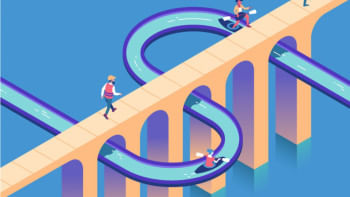Politics
US urges dialogue among parties without any condition
The US government wants an unconditional dialogue among political parties in the country to resolve the political crisis over the upcoming election, US Assistant Secretary Donald Lu has said
JS opens probably the last session, to continue till Nov 2
The 25th session of the 11th Jatiya Sangsad (parliament) went into session today possibly for the final time before the next general election
AL to stage demo across country tomorrow
Protesting the "violence" unleashed by BNP, ruling Awami League and its all front and associate bodies will stage demonstration across the country tomorrow
China, US ties at a crossroads, Xi tells Kissinger
Kissinger's visit to China comes at a time when the two superpowers are embarking on a course to stop their relations, already at historic lows, from sinking further
Plot afoot to create chaos ahead of polls: Quader
Road, Transport, and Bridges Minister Obaidul Quader has said that attempts are being made to plunge the country in turmoil ahead of the upcoming election
In Defence of Politics
The word “politics” is much maligned and stigmatised. It suffers from a huge image problem both in the world as well as in Bangladesh.
The debate over Khaleda Zia’s parole
Ever since the imprison-ment of BNP Chairperson Khaleda Zia, her party has systematically demanded her release. Recently, a possibility for her “parole” has come up in discussion, even amongst the leading members of the ruling Awami League.
Citizens And The City Polls / Manifestation of Apathy or De-facto Disenfranchisement?
Amartya Sen characte-rised “argumen-tative Bengalis” also take avid interest in politics. In 2013 the Pew Research Center found that Bangladeshis are the most politically engaged nation. 65 percent of Bangladeshis were in the “high level” political participation category and a further 29 percent at “medium level”.
Make jute sector profitable: PM
Announcing incentives for the private sector to boost production and export of jute and jute goods, Prime Minister Sheikh Hasina calls upon all concerned to take effective steps for making the jute sector profitable to sustain the jute industry.
On Democratic Socialism
After the collapse of the Soviet Union in 1991, the 20th century's ideological contest seemed over. Capitalism had won and socialism
All cards laid on the table, what now for Dhaka North?
One more day and it's election time for the northern part of the capital city. Residents of the Dhaka North City Corporation (DNCC) will choose their mayor for the second time in four years since the first mayoral election of a bifurcated Dhaka was held in 2015.
The irony of an appointment
On February 18, while raising a supplementary question in parliament, Jatiya Party leader Fakhrul Imam offered a glimpse into two of
The burden of history and the role of intelligentsia
Since the day of the 11th parliamentary election, the people of Bangladesh have seen the rise of two diametrically opposite discourses:
Closing the gender gap in women's political empowerment
The World Economic Forum's “Global Gender Gap Report 2018”, published before the last general election in the country, has surprised many as it placed Bangladesh in the 5th position among 149 countries in terms of closing the gender gap in the sub-index “political empowerment”.
Four takeaways from the 2018 election
The 11th parliamentary election of Bangladesh will go down in history as the election of simultaneously many firsts and many contrasts. Billed as the country's first “participatory” election in a decade, it gave the incumbent Awami League a landslide victory—and reduced its arch-rival BNP, once again, to irrelevance. While an Awami League win was largely
A case of overkill
The Awami League and partners led by Sheikh Hasina won a stunning victory in the 11th parliamentary election on December 30 bagging over 95 percent of the seats. Is it a victory for the people also? If not, can it still be turned into a people's victory?
AL's historic third term
Awami League is poised for a third consecutive term in power, which is unprecedented in Bangladesh's history. The country went to the polls yesterday after ten years of wait for a participatory election, and the AL achieved a landslide victory.
Road to the 11th Parliamentary Election
On December 7, 1970, after 23 years of existence, Pakistan witnessed its first general election. People from West and the then East Pakistan voted in 300 parliamentary constituencies to elect members of the National Assembly of Pakistan. The outcome of the election was a landslide win by the Awami League, which won 160 seats in the National Assembly.














